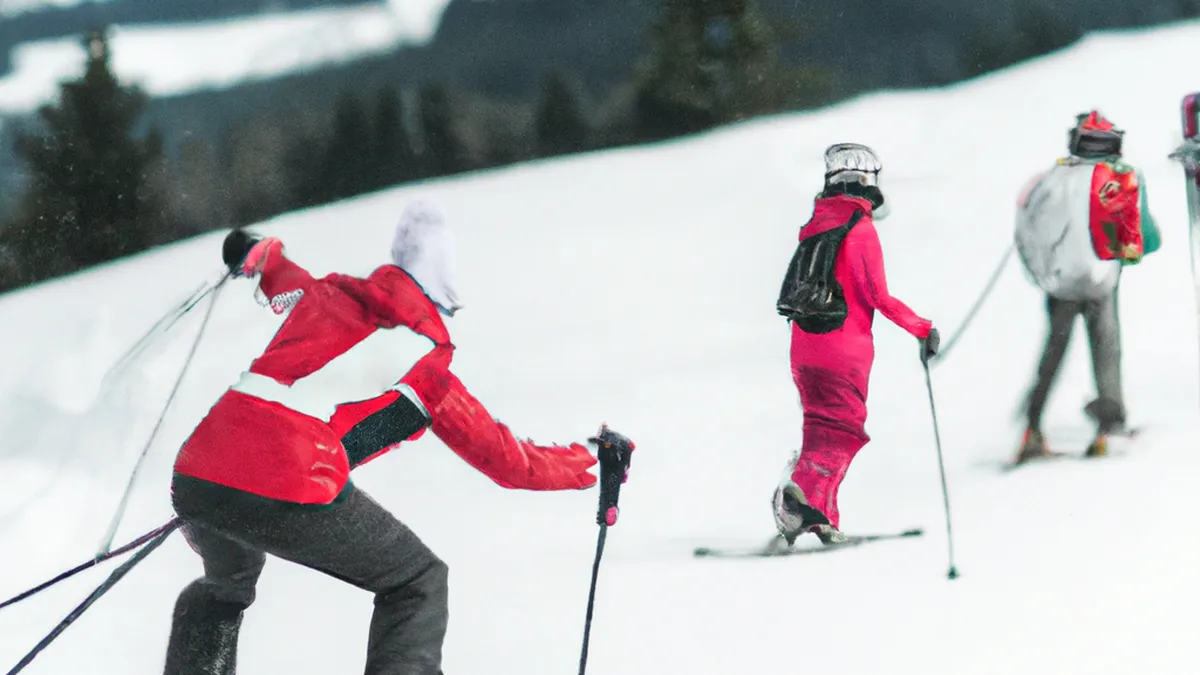Safeguarding Your Knees on the Slopes
Preemptive Measures for Skiing-Related Knee Injuries
As an Amazon Associate I earn from qualifying purchases.
Gear tip: consider protein powder, shaker bottle and electrolyte mix to support this workout.
Skiing exhilarates by offering a unique rush. The wind in your hair and breathtaking views create unforgettable experiences. However, skiing carries risks, especially knee injuries. These injuries can sideline you for weeks and may cause long-term issues. Fortunately, you can take measures to protect your knees. This blog discusses effective strategies to reduce knee injury risks while skiing.
Understand the Risks
Before skiing, understand common knee injuries. Skiers often tear ligaments, particularly the anterior cruciate ligament (ACL). Other injuries include meniscus tears, ligament sprains, and strains. Knowing these risks helps you prepare and take precautions.
Knee injuries usually result from falls, awkward landings, or sudden stops. Factors like poor conditioning or challenging terrain increase your injury risk. Preventive strategies can significantly lower your chances of injury and enhance your skiing experience.
Strengthen Your Legs
Strength training prevents knee injuries effectively. Strong legs provide stability and support while navigating ski slopes. Focus on exercises targeting your quadriceps, hamstrings, calves, and glutes.
Recommended Exercises
1. **Squats**: Strengthen your quadriceps and hamstrings. Aim for three sets of 10-15 repetitions while keeping your knees behind your toes.
2. **Lunges**: Enhance stability and flexibility crucial for quick ski movements. Include forward, backward, and side lunges for a complete workout.
3. **Leg Press**: This machine mimics skiing movements. Adjust the weight to your fitness level and aim for two to three sets of 10-12 reps.
4. **Balance Exercises**: Use single-leg stands, balance boards, or stability balls to improve stability. Core-strengthening exercises also support your knees.
Maintain consistency in your workouts to transition smoothly from strength training to skiing. Aim for at least two to three strength training sessions weekly before your trip.
Improve Your Technique
Proper skiing technique is crucial for preventing injuries. Poor form can lead to falls and movements that strain your knees.
Key Tips for Technique
1. **Stay Balanced**: Keep your weight centered over your skis. This position enhances control and reduces knee strain.
2. **Bend Your Knees**: Always bend your knees while skiing to absorb shocks and maintain balance.
Conclusion
Protect your knees by understanding risks, strengthening your legs, and improving your skiing technique. Enjoy safer skiing experiences.
Below are related products based on this post:
FAQ
What are the common knee injuries associated with skiing?
The most common knee injuries in skiing include ligament tears, particularly the anterior cruciate ligament (ACL), as well as meniscus tears, ligament sprains, and strains. Understanding these risks can help you take necessary precautions while skiing.
How can I strengthen my legs to prevent knee injuries while skiing?
You can strengthen your legs through various exercises such as squats, lunges, leg presses, and balance exercises. Focus on targeting the quadriceps, hamstrings, calves, and glutes, and aim for at least two to three strength training sessions per week before your skiing trip.
What skiing techniques can help reduce the risk of knee injuries?
To reduce the risk of knee injuries, it is essential to maintain proper skiing technique. Key tips include staying balanced by keeping your weight centered over your skis and bending your knees to absorb shocks and maintain balance while skiing.















Post Comment